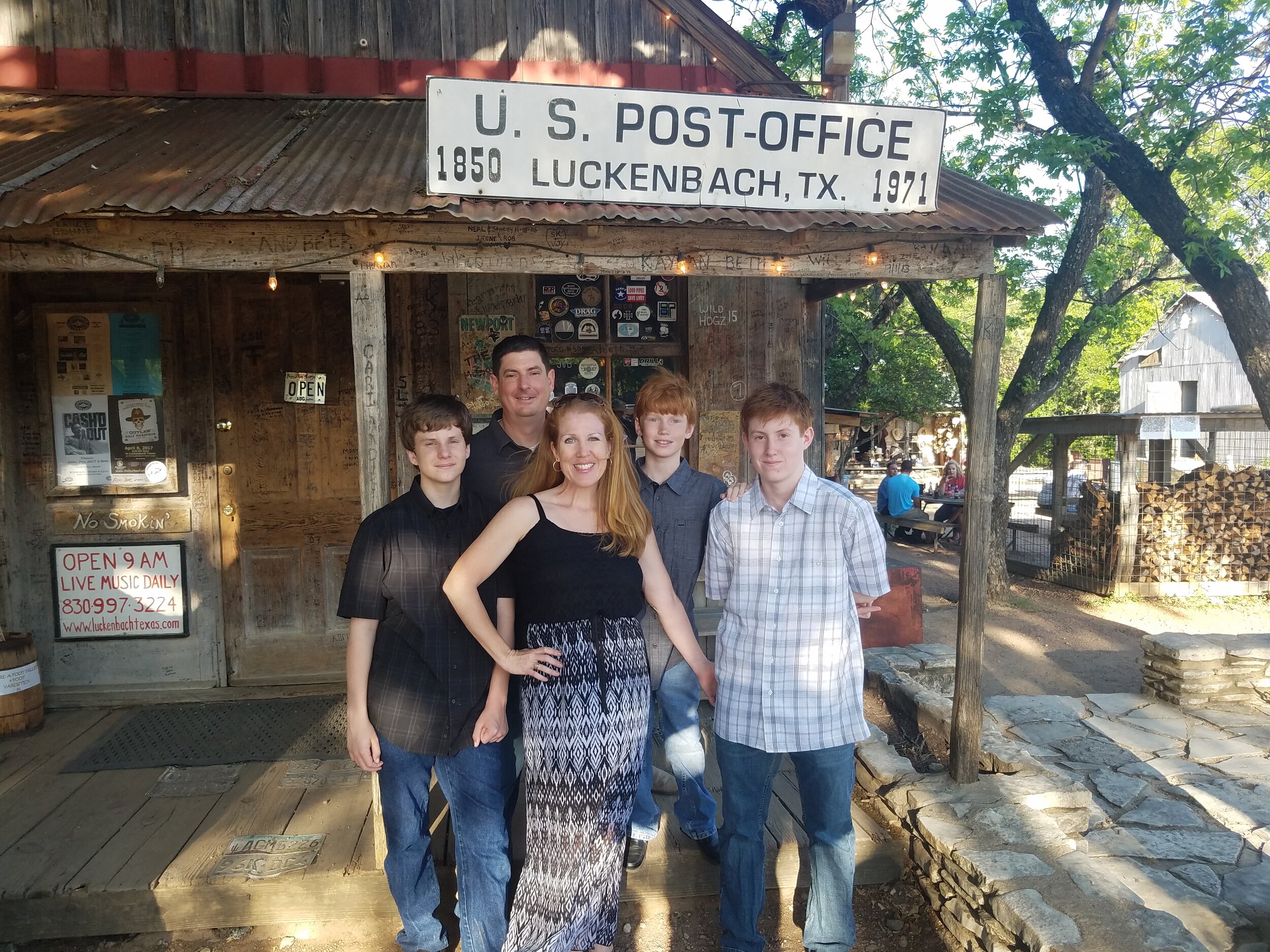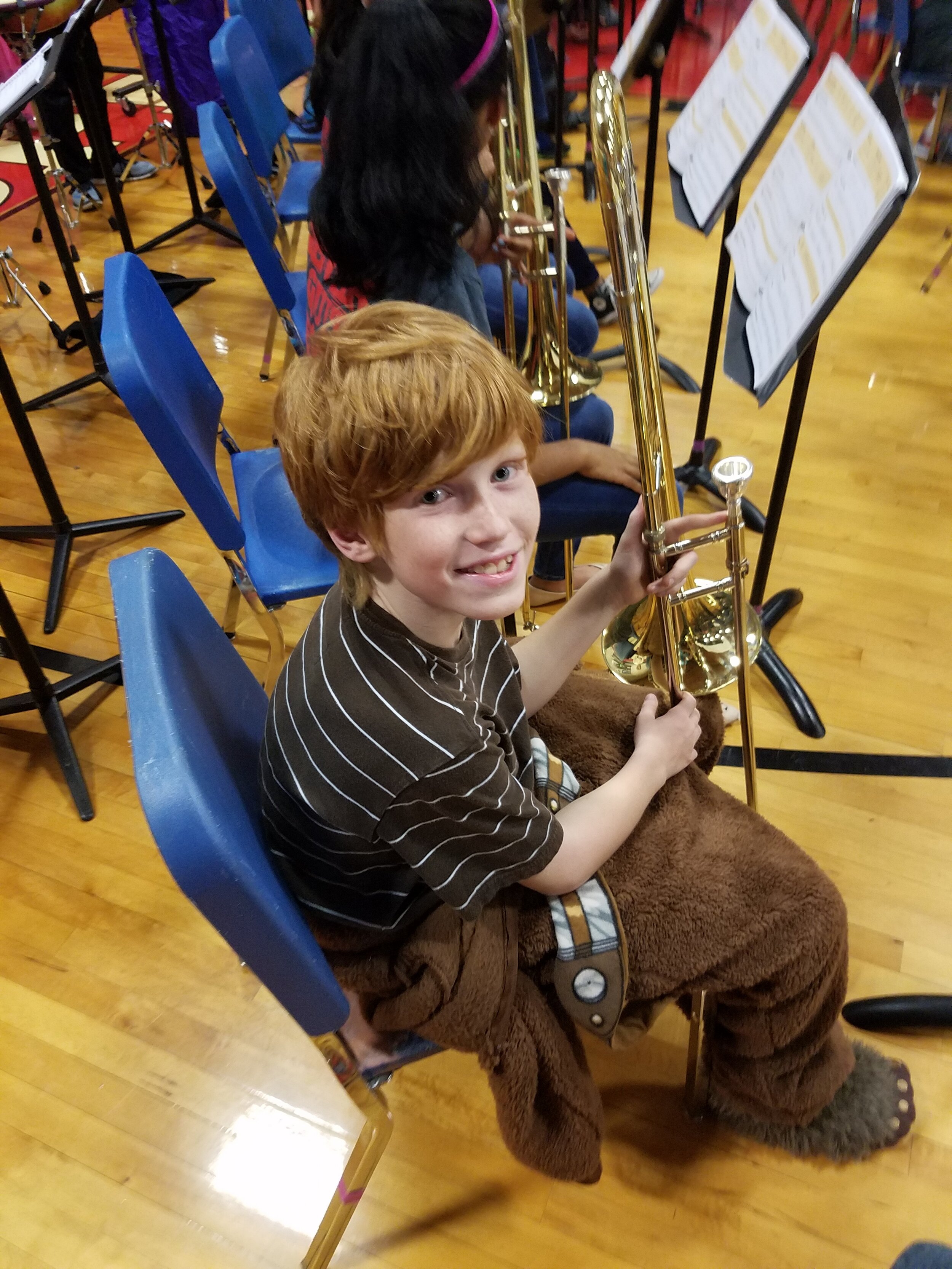Interview by Mary Martin. Photos courtesy of Carson’s Village.
The time between the sudden loss of a loved one and a memorial service can be a heart-wrenching time, especially for those without close community to help. After losing their 11-year-old son to suicide, Jason and April Dyke launched Carson’s Village to walk alongside families as they handle the details of death and begin the grieving process. We asked Jason about his experience with sudden loss and how Carson’s Village has connected families to the resources and mental health professionals that can make a positive impact during a tragic experience.
After walking through your own experience with loss, why did you decide to serve grieving families in this specific way?
When my family lost our son Carson, we were stunned and had no idea what steps to take, where to turn or what to do. We were fortunate to have a village of supporters, a group of close friends from our days at Texas A&M University. Those friends supported us immediately after Carson passed, helping us make the difficult decisions that need to be made after a loved one passes, during a time that we were in shock and not making the best decisions. Once we were able to reflect back on that experience, we realized that having that village of support was an incredible privilege that not everyone has access to. We started Carson’s Village to help other families as they go through the difficult, mind-numbing days after the death of a loved one.
The Dyke family in 2017.
The Dyke family in 2020.
What does it look like to walk with someone who has never experienced loss or grief before?
It is tough every time. Families are in an emotionally vulnerable position. While I may not understand exactly what they are feeling, I know what it is like to be in that situation. It is hard even when they know the passing is coming, but if it is sudden, violent or not in the natural order it can be devastating. Often, the family is in shock and leading them to make decisions quickly to “check the box” as they work on planning the funeral. Carson’s Village is there to help them make the best decision possible for their family and find the resources that meet both their emotional and financial needs. It is easy for things to start to spin out of control and expand beyond a family’s financial means. Carson’s Village is there to prevent that. Carson’s Village also provides mental health support, to ensure that families begin to grieve in a healthy way, staying with them and monitoring their progress for over a year. While the support that we provide can vary greatly with each family, Carson’s Village is committed to help families survive and thrive during this challenging time.
Carson in 2016.
How has your experience at Carson’s Village opened your eyes to how people across communities and cultures approach grief and mental health care?
Since January of 2018, Carson’s Village has helped nearly 400 families in 29 states. Carson’s Village has helped families that have lost newborns to elderly grandparents and everyone in between. Every family grieves in different ways based on their beliefs, culture, connection to their community and a variety of other factors. Carson’s Village is sensitive to the different needs of every family and seeks to provide a customized, compassionate response that meets their needs.
As you are watching many people experience various kinds of loss right now during the COVID-19 pandemic, what is one way you would suggest to practice self-care, and when is the right time to talk with a mental health professional?
Self-care is critical during this challenging time. People are already mourning a way of life and are under incredible stress because of the COVID-19 pandemic. Facing financial hardships, social isolation, and chronic uncertainty are taking their toll. Paying attention to physical and mental triggers is critical and knowing when to ask for help is key. Carson’s Village recommends basic health advice, including eating healthy foods and getting adequate sleep and exercise. Individuals will also benefit from setting a routine and from reaching out to family and friends, especially when they are experiencing grief. Each person is different and needs to find the support that works for them. Finding a mental health professional to talk to is an excellent resource as well and with tele-health options available today, is available to more families than ever before.
How have you seen the Carson’s Village community support each other over the past few months?
One of the things that I am most proud of is the “Village” part of Carson’s Village. Carson’s Village has the unique ability to connect past clients with current families who have gone through a similar situation in the past. We have connected mothers who have lost a child, wives who have lost a husband and others who have wanted to pay the assistance that they received forward. This support will continue to grow as Carson’s Village helps more and more families.
How can someone support the work you are doing at Carson’s Village?
The best way to support Carson’s Village is by telling our story. Share the Carson’s Village Facebook page and e-newsletter with your network. Connect us to frontline services such as hospitals, police departments, schools or social services so that their clients can access the services of Carson’s Village. And finally, donate to Carson’s Village to ensure these services are available to families who need our support for years to come. If you would like to connect with the Carson’s Village Team, you can call them at 877-789-0722 or email at help@carsonsvillage.org.
If you or someone you know is experiencing a mental health crisis or suicidal thoughts, please dial 1-800-273-8255 for the National Suicide Prevention Lifeline. For help finding a mental health resource, call the Here for Texas Mental Health Navigation Line at 972-525-8181.


